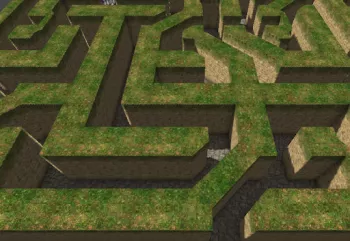Apps Home

The Essence of Ramadan's Spirituality
Ramadan, the ninth month of the Islamic lunar calendar, holds profound significance and offers a unique opportunity for spiritual rejuvenation. At its core, the practice of fasting from dawn until sunset is not merely about abstention from food and drink; it is a comprehensive exercise in self-discipline, empathy, and the pursuit of spiritual depth. The essence of Ramadan's spirituality is deeply rooted in Taqwa, or God-consciousness, where the faithful engage in an introspective journey to purify their souls, seek forgiveness, and build a stronger connection with their Creator. To achieve this, Muslims around the world dedicate themselves to increased periods of prayer, reflection, and charitable acts, embodying a holistic manifestation of faith in action. The act of fasting, known as Sawm, extends beyond the physical deprivation to the realm of ethical and emotional restraint, where individuals are encouraged to curb negative thoughts, harmful speech, and illicit actions. This deliberate restraint cultivates a heightened sense of awareness and self-control, which are essential components of the spiritual cleansing sought during Ramadan. By fasting, individuals become acutely aware of their privileges and the struggles faced by the less fortunate, fostering a culture of gratitude and empathy. Additionally, Ramadan emphasizes the importance of the Quran, the holy book of Islam, encouraging believers to engage with its teachings through nightly prayers (Taraweeh) and personal study. The Quran's recitation provides comfort, guidance, and an opportunity for deeper understanding, nurturing a profound personal connection to its timeless wisdom. The culmination of Ramadan in the celebration of Eid al-Fitr symbolizes a spiritual renewal, as individuals emerge with a reinvigorated sense of purpose and a commitment to carry forward the virtues nurtured during this sacred month.
Cultural Practices and Community Reflections
Ramadan's observance is as diverse as the Muslim Ummah itself, rich with cultural practices that reflect the vibrant tapestry of the global Islamic community. While the fundamental tenets of fasting and prayer remain consistent, each culture has developed unique traditions that offer a glimpse into the localized expressions of faith. In Indonesia, the world's largest Muslim-majority country, the month of Ramadan is marked by the tradition of 'Ngabuburit', where people gather in public spaces and engage in community activities as they await the breaking of the fast. This social gathering fosters a sense of unity and camaraderie, reinforcing the collective aspect of Ramadan. In Egypt, streets come alive with the vibrant lanterns known as 'Fanous', which are symbolic of hope and the illuminating guidance of faith. These lanterns have crossed generations and are said to trace back to the Fatimid Caliphate, serving as a cultural hallmark that intertwines history with contemporary practice. Turkish Muslims, on the other hand, commemorate this holy month with communal pre-dawn meals called 'Sahur' and demonstrate their generosity through acts of 'Zakat' (charitable giving). This fusion of practices showcases the richness of Islamic heritage while emphasizing the universal values of community support and mutual respect. Moreover, Ramadan is a time where community reflections are especially pronounced; mosques become bustling hubs of worship, offering spaces for collective prayers and spiritual support. In Western contexts, interfaith dialogues often emerge during Ramadan as Muslims engage with members of other religious communities, fostering a deeper understanding and appreciation of diverse beliefs. This aspect of communal solidarity underscores the spirit of Ramadan, revealing a shared human condition and a universal yearning for peace, compassion, and spiritual fulfillment.
Psychological and Physical Benefits of Fasting
Modern science has begun to catch up with the age-old wisdom harbored within the practice of fasting during Ramadan. The physiological and psychological benefits associated with this practice are manifold, extending beyond spiritual growth to impact well-being in profound ways. On a psychological level, fasting during Ramadan is a powerful exercise in self-discipline that enhances mental resilience. The structured nature of fasting imparts a sense of purpose, requiring individuals to exercise willpower and forge routines that foster mental clarity and emotional stability. It offers a unique opportunity to detach from everyday indulgences and distractions, prompting introspection and mindfulness—a state wherein individuals become more present and attuned to their thoughts and emotions. This period of self-reflection often leads to a reduction in anxiety and stress, as practitioners set aside worldly concerns in favor of spiritual pursuits. Physically, the health benefits of intermittent fasting, a practice that Ramadan inherently embodies, are corroborated by scientific research. Fasting has been linked to improved metabolic health, reduced inflammation, and boosted brain function, as well as aiding in weight management. The abstinence from food and drink allows for metabolic rest, prompting the body to utilize stored energy more efficiently and ultimately promoting cellular repair processes. Moreover, this practice encourages healthier eating patterns post-Ramadan, as the period of fasting often re-calibrates palates away from processed foods in favor of wholesome, nourishing sustenance. However, the physical benefits of fasting during Ramadan are best actualized when individuals approach the practice with balance, ensuring proper nutrition and hydration during non-fasting hours to sustain overall health and vitality.
The Role of Technology in Contemporary Worship
In today's increasingly digital world, technology plays a pivotal role in reshaping the landscape of worship during Ramadan, enhancing the accessibility and experience of spirituality. Technological innovations have seamlessly integrated into the traditional fabric of Ramadan, offering tools and platforms that support and enrich religious practices. Mobile applications, for instance, have revolutionized the way Muslims engage with their faith by providing tailored content ranging from prayer times and Quranic recitations to virtual reminders and community forums. These applications allow for an adaptive approach to worship, where individuals can customize their spiritual routines to align with their personal schedules and goals. The use of social media platforms has also thrived as a conduit for shared experiences and community building, allowing individuals to share inspirational content, fasting tips, and reflections that encourage collective growth. Moreover, virtual learning platforms have democratized access to religious education, enabling believers to deepen their understanding of Islamic teachings through online courses and lectures by esteemed scholars. This has proven especially impactful in Western contexts, where geographical barriers may have historically limited access to Islamic knowledge. Additionally, the gamification of Ramadan practices through mobile games like "Ramadan Spirit Journey" engage younger generations by weaving together entertainment and education, thus nurturing an enduring interest in their faith. The app's immersive elements challenge users to stay alive against virtual adversaries, subtly drawing parallels with the internal battles faced during fasting. Coupled with community-driven initiatives organized online, technology has indeed transformed Ramadan into a global digital congregation, bridging gaps and fostering a sense of unity across distances.
Future Perspectives and Innovations
Looking ahead, the future of Ramadan observance will undoubtedly continue to evolve, inspired by ongoing innovations that respond to the dynamic needs of the global Muslim community. As technology advances, so too will the potential for richer, more inclusive experiences of spirituality that transcend traditional boundaries. Future innovations may further enhance aspects of Ramadan through virtual reality experiences that transport users to sacred Islamic sites, immersing them in a holistic spiritual journey regardless of their physical location. Such advancements would provide unparalleled opportunities for education and reflection, offering believers the chance to explore historical narratives and experience sacred rituals virtually. Additionally, artificial intelligence may play a transformative role in personalized spiritual coaching, where tailored programs guide individual progress based on personal goals and data-driven insights. The integration of ethical AI systems could assist in fostering accountability, offering real-time feedback to enable practitioners to better align daily actions with their spiritual aspirations. Furthermore, the rise of wearable technology could introduce biosensors that offer insights into nutritional needs and wellness, empowering individuals to maintain optimal health throughout fasting. These devices could sync with Ramadan apps to remind users of prayer times and suggest personalized dietary plans. As sustainability becomes increasingly pressing, innovations in eco-friendly initiatives may encourage more environmentally conscious Ramadan practices, addressing waste reduction and energy conservation in communal gatherings. Finally, as society becomes ever more interconnected, Ramadan presents a unique opportunity for continued intercultural dialogue, where technology acts as the bridge facilitating greater understanding and harmony among diverse communities. This forward-looking perspective exemplifies Ramadan's enduring adaptability and the ever-evolving pathways through which the faithful can continue to embrace its spirit and commemorations with renewed vigor and relevance. Ultimately, such advancements not only hold the potential to enrich the spiritual journey of individuals but also strengthen global cohesion and solidarity. At this juncture, those interested in exploring a gamified experience aligned with Ramadan principles can try engaging with mobile games such as the "Ramadan Spirit Journey" where flight from enemies acts as a metaphor for overcoming life's trials, available for enthusiasts on various platforms including the option to Download for Android.
Share Your Opinion
Your Email Will Not Be Published.
All Rights Reserved © Apps Home 2025



























yaso yaser
اللعبة جامدة مووووووت🔥
Dinago FF
,شكرا
Challenges Time
عظمة❤️
Azizi Hamza
كفو اخوك من المغرب و كل الحب🇲🇦🇲🇦🇲🇦🇲🇦
Asser Ali
اعمل فيها خرائط و اعمل مخرج منها و أسلحة